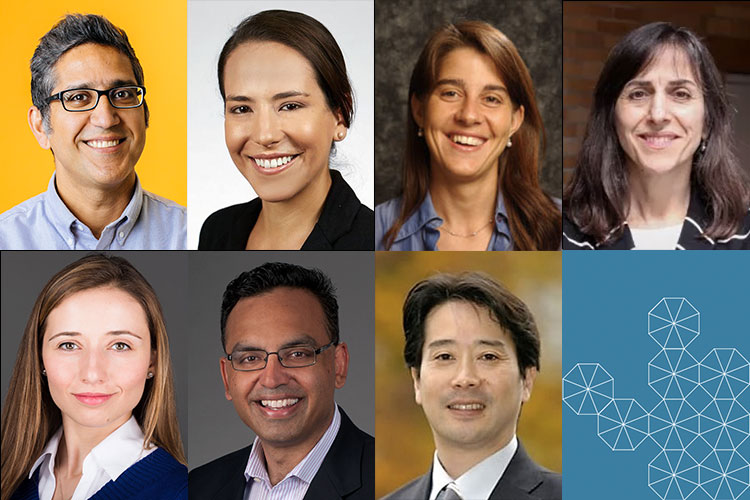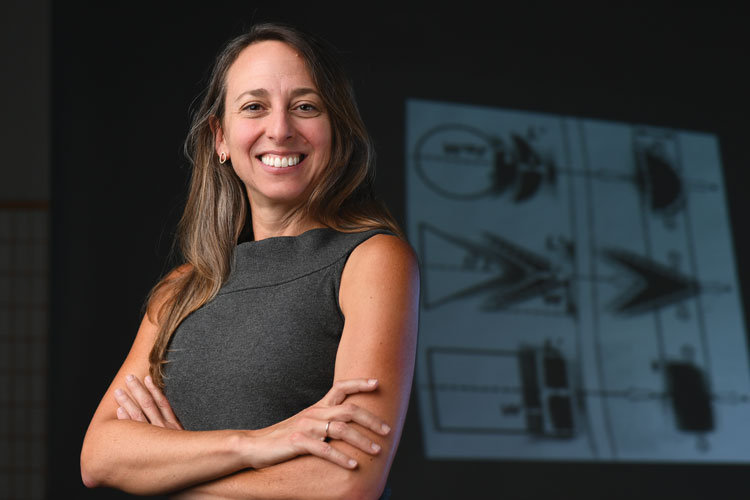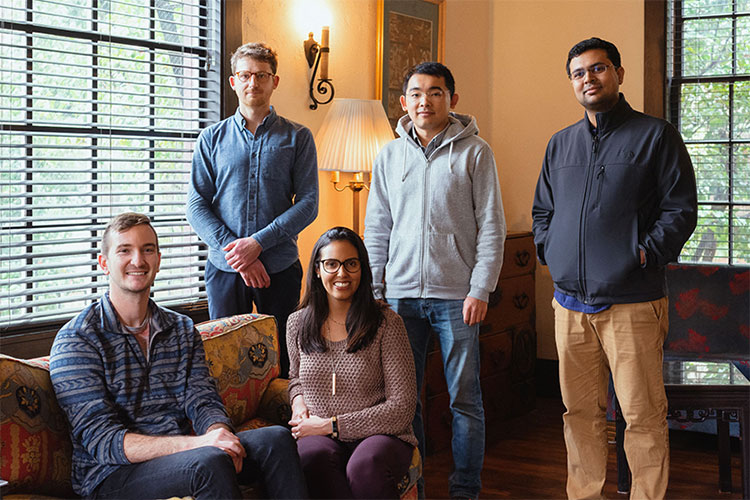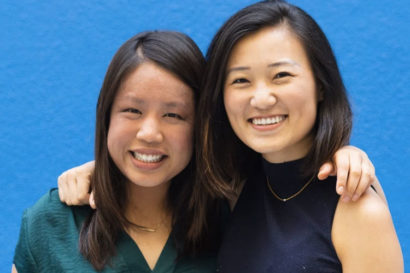Seven new Bakar Fellows already are making an impact

Seven University of California, Berkeley, faculty scientists with novel ideas and an entrepreneurial spirit have been named to the 2019-20 cohort of Bakar Fellows, an honor that gives the fellows the money and time to translate their laboratory breakthroughs into technologies ready for the marketplace.
The awards foster a culture that led Forbes magazine to rank UC Berkeley the #3 entrepreneurial university in the country several years ago, and keeps the campus at the top nationwide in terms of venture capital-funded start-ups and women-led VC-backed startups.
While some new fellows may become future CEOs, all will serve as role models, mentors and faculty founders with advice for equally entrepreneurial students, postdoctoral scholars and faculty, according to the program’s faculty director, Amy Herr, a UC Berkeley professor of bioengineering.
“Our goal is to boost projects with applied potential, but also to make visible the faculty who are interested in translating their discoveries out into the world in some way,” Herr said. “This is particularly important for students and postdocs who are in environments where startups are not visible or celebrated — or perhaps they have not viewed themselves as ‘entrepreneurial’ just yet — to connect them with people who can advise and make connections.”
The Bakar Fellows Program at UC Berkeley fosters faculty entrepreneurship in fields including engineering, computer science, the biological and physical sciences and architecture.
The seven new Bakar Faculty Fellows — up from five in previous years — are:
Arash Komeili, associate professor of plant and microbial biology, is engineering bacteria to efficiently isolate metals from minerals, thereby minimizing the environmental damage typical of traditional mining.
Markita Landry, assistant professor of chemical and biomolecular engineering, who has invented a nanoparticle-based method for delivering DNA and other biomolecules into plants that she is developing for high-throughput, high-yield genetic engineering.
Alessandra Lanzara, Charles Kittel Professor of Physics, whose research group has invented a way to measure and control the spin quantum number of electrons in materials. She is now exploring the technique’s application in quantum computing.
Roya Maboudian, professor of chemical and biomolecular engineering, who is adapting her discovery — an environmentally-friendly, porous crystalline material with a strong affinity for carbon dioxide — into an inexpensive and highly sensitive color-coded carbon dioxide detector.
Niren Murthy, professor of bioengineering, who created a chemical amplification system called DETECT that will help rapidly identify bacterial drug resistance and improve the treatment of bacterial infections in humans.
Raluca Ada Popa, assistant professor of electrical engineering and computer science, who is designing a secure computation platform that allows collaborative study of aggregated encrypted data to maintain data privacy and to avoid transfers of unencrypted data.
Kenichi Soga, Chancellor’s Professor in the Department of Civil and Environmental Engineering, who invented next-generation sensor systems based on distributed fiber optic sensing (DFOS) technology. He is adapting these sensors to aid engineers in understanding the performance of the nation’s infrastructure and identify age-related weaknesses and potential failures.
Skirting the ‘Valley of Death’
In addition to generous financial support, Bakar Fellows may utilize space in UC Berkeley’s Skydeck, a university incubator/accelerator in downtown Berkeley, and take advantage of interactions with the Haas School of Business and its Lester Center for Entrepreneurship, the College of Engineering’s Fung Institute for Engineering Leadership, and the Office of Intellectual Property and Industry Research Alliances (IPIRA).

With the 2019-2020 cohort, the Bakar Fellows Program has benefited 43 Berkeley faculty and their research groups by helping them develop their innovations for the market in areas considered likely to stimulate California’s economy. The program is a resource as innovators navigate the so-called Valley of Death — the gap between benchtop discovery and real-world application — that, as the name implies, has killed off many a promising innovation.
“The goal of the program is to keep entrepreneurial faculty at the university,” emphasized Herr, a former Bakar Fellow. “Taking entrepreneurial leave to get a startup off the ground is wonderful. Having faculty with startup experience on our campus every day — advising, teaching, mentoring — transforms the student experience. We work to make faculty who are experienced inventors and entrepreneurs a visible resource to our community.”
“In reality,” she added, “often the best qualified and best positioned people to lead these startups are our postdoctoral and grad student alumni.”
To build this larger community, the Bakar Innovation Fellows program was launched two years ago to engage graduate students and postdoctoral scholars already working in the research groups of Bakar Faculty Fellows. Several of the Bakar Innovation Fellows are now leading startups stemming from the program.

A prime example is Tinctorium Inc., whose chief scientific officer, Tammy Hsu, was a Bakar Innovation Fellow with John Dueber, a UC Berkeley professor of bioengineering and 2014-2015 Bakar Faculty Fellow. They created a genetically engineered microbe that produces an environmentally friendly and sustainable indigo dye to color blue jeans. After obtaining her Ph.D., Hsu launched Tinctorium last year with Dueber as bioengineering adviser.
“Tammy was considering starting a company based on her graduate work, but there is obviously a lot more to starting a company than the science and technology,” Dueber said. “The Bakar Fellows Program was emboldening by providing interactions with other students who were undergoing similar challenges, while having an eye toward ultimately commercializing their work. The program also provided organized interactions with successful entrepreneurs, where fellows could ask questions and get valued advice.”

“We focus on faculty because they are the node through which we can sustainably infuse experience and resources to the campus,” Herr added, “but the more I learn about taking discoveries and inventions out into the world, the more I realize that it is really pioneering alumni like Tammy who are going to make it happen.”
Current Bakar Fellow David Schaffer — who has spun off four companies focused on gene therapies, protein engineering and biomaterials — is sold on the program.
“The Bakar is an important and terrific program that provides critical resources to give freedom to entrepreneurs as they translate their ideas and innovations toward companies and products,” said Schaffer, a Berkeley professor of chemical and biomolecular engineering and director of the Berkeley Stem Cell Center.
